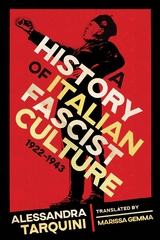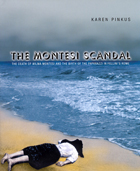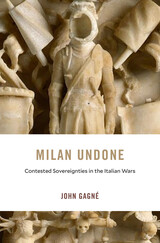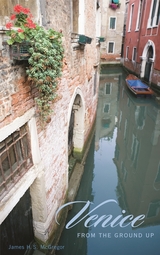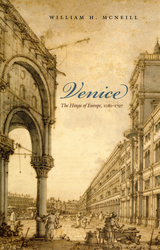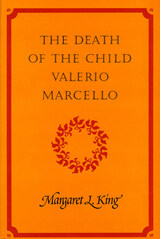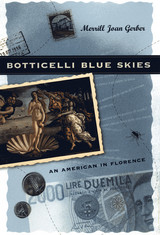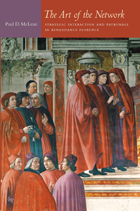Contents
Introduction 000
Map 000
Book I (1487-1493)
Preface 1 * War in the Tyrol: cause and onset 3 * The attack on
Rovereto 5 * Single combat between Georg Sonnemberg and Antonio
Maria da Sanseverino 12 * The Germans leave Rovereto 14 * Luca
Pisano and Girolamo Marcello debate the siege of Trento 16 * The
death of Roberto da Sanseverino; Venetian defeat at the fortress
of Petra 22 * The end of the war and the terms of peace 29 *
Sumptuary and other laws passed; the arrivals at Venice of
Giovanni Bentivoglio and of the Queen of Denmark 31 * Girolamo
Riario and Galeotto Manfredi assassinated 33 * Francesco Priuli
sent to counter the Turks 34 * Caterina Cornaro is convinced by
her brother Giorgio to turn Cyprus over to Venice 35 * Laws
passed and Senate decrees 42 * Truce negotiated by the Senate
between the Emperor Frederick and King Matthias of Hungary; the
emperor visits Italy 44 * Various legislation and deliberations
46 * Description of the gun, and the Senate's introduction of its
use 48 * Ermolao Barbaro is made Patriarch of Aquileia;
subsequent events, and his death 51 * Girolamo Marcello is
expelled from Constantinople 54 * Addition of a third Criminal
Court of the Forty; the system for casting votes 57 * The
corruption of certain citizens is repressed 61 * Deaths of
Lorenzo de' Medici and Pope Innocent VIII, and the election of
Alessandro Borgia; alliance of the pope, the duke of Milan, and
Venice 63 * Arrival at Venice of Eleanora, wife of Ercole d'Este,
and her children 64
Book II (1493-95)
Onset and causes of the war of Naples waged by Charles VIII of
France 1 . Great floods in Lombardy; certain trials held in
Venice 5 . Charles decides to invade; death of Ferrante, king of
Naples 8 . Embassy of Charles to the Venetians 10 * Naxos taken
under the protection of the Venetian Republic 11 . Colloquy and
treaty between King Alfonso II of Naples and Pope Alexander VI;
preparation of a fleet against the Turkish sultan 12 . Embassy of
Florence to the Senate to seek advice 13 . Scardona and Clissa
voluntarily subject themselves to Venice 14 . Arrival of King
Charles in Italy; death of Giangaleazzo, duke of Milan 16 . Piero
de' Medici is ousted from Florence 18 . Achievements of King
Charles in Italy 19 . Bayazid's ambassador violated by the prince
of Senigallia 20 . Charles enters Rome; Venetian galleys sent to
Flanders are sunk at sea 21 . Departure of King Alfonso from
Naples and his death; his son Ferrandino succeeds to the kingship
23 . Death of Sultan Djem 25 . Flight of King Ferrandino of
Naples, and entry of Charles 26 . Fear of the Turks due to
victory of the French king 27 . Embassy of the Spanish sovereigns
to Venice and the fleet sent to Sicily 28 . Death of emperor
Frederick; embassy of King Maximilian to the Senate 30 . Treaty
entered into between Venice, the pope, the sovereigns of Spain,
Ludovico Sforza, and Maximilian, against King Charles 31 .
Departure of King Charles from Naples 36 . Novara is taken by
Louis, Duke of Orleans 38 . Preparations of Venice and her allies
against Charles 39 . The battle at the Taro river 41 . Actions
with the French in Liguria 56 . The Senate takes account of those
who had fought bravely 58 . Venetians, Milanese, and Ligurians
become exiles from the domain of Charles 60 . Siege of Novara by
the allies 61 . Peace made between Ludovico Sforza and King
Charles, and its terms 63 . Contarini's plot to assassinate
Ludovico Sforza 65 . Charles' return to France 66
Book III (1495-1497)
Arrival of King Ferrandino in Calabria and adverse battle with
the French 1 * Causes of the Neapolitans' hatred for the French 2
* Return of the same Ferrandino to Naples 3 * Actions of the
Venetians in the Kingdom of Naples on Ferrandino's behalf; Venice
sends a fleet to Naples 6 * Grain storerooms built at Venice near
St. Mark's Square 10 * Pisa surrenders to Venice but is rejected
by the Senate 11 * Embassy and gifts to the Senate from the
Turkish sultan 17 * Faenza and her prince taken under the
protection of the Senate; Clock tower built at Venice in the
Piazza 19 * Treaty of Venice with Ferrandino 20 * Varying
fortunes of the French and Ferrandino in the Kingdom of Naples 21
* Pisa taken under the protection of Venice, the pope and
Ludovico Sforza, and the beginning and progress of the war for
Pisa 23 * Board of Three for maritime affairs instituted; law
passed concerning possessors of property 26 * Ludovico Sforza
named duke by Maximilian; Battle of the cavalry of Nauplia with
the Turks 27 * Achievements of Bernardo Contarini in the kingdom
of Naples, and his death 28 * Death of Ferrandino, King of
Naples, and succession of Federigo to the kingship; Prince of
Bisignano wounded by a servant 38 * Departure of the French from
Gaeta, and their shipwreck 39 * Varied counsels of the Tarantines
concerning surrender, and of the Venetian Senate concerning
accepting them or not 40 * Origin of syphilis 43 * The Emperor
Maximilian, summoned by Ludovico Sforza, Venice, and the other
allies, comes into Italy against the French 52 * The emperor's
actions in Tuscany, and his return to Germany 55 * The Ten look
out for those who suffered fire or shipwreck 59 * Attempts of the
French upon Piedmont 62 * Naval battle between Florence and
Venice 65 * An opportunity to assassinate King Charles is
rejected by the Senate 70
Book IV (1497-1499)
A truce is established between Charles and the Spanish
sovereigns; ambassadors are sent by the Senate to procure peace
between the kings of Spain and France 1 * The Spanish sovereigns
send to the Senate the king of one of the Canary Islands 3 * The
captain-general Francesco is accused before the Senate 4 *
Progress of the war for Pisa 5 * Battle of a galley of the
Republic with the Turkish fleet 6 * Naval battle of Bernardo
Cicogna with the pirate Peruca 8 * The fleet of Pedro Navarro is
burned by Andrea Loredan 9 * Citizenship and noble status is
given to Joannes Corvinus 11 * Armenians are granted a home in
Venice 12 * Ludovico Sforza's treachery toward Lucca 13 * Death
of King Charles of France 15 * Defeat of the Florentines near a
Tuscan fortress 17 * Plans and stratagems of Ludovico Sforza 19 *
Arrogance of some in magistracies is punished 23 * Defeat of the
Venetians at Luna and Cascina 24 * Attempts of the Venetians in
the Casentino 40 * Pisa is attacked by Paolo Vitelli 43 *
Preparations and plans of the Turkish sultan against the
Venetians, and the causes of this 50 * Louis hailed as king of
France, and the Venetians' embassy and gifts to him 54 * Treaty
between the Venetians and King Louis 55 * Settlement between the
Venetians and the Florentines in Pisan affairs 59 * The French
invasion of Piedmont 63 * Milan is taken by the French, and
Cremona by the Venetians; Ludovico Sforza leaves Piedmont;
arrival of the king of France in Milan 66 * Louis of Luxembourg
and many others are granted citizenship and noble status 68 * The
French king returns to France 69
Note on the Text and Translation 000
Notes to the Text 000
Notes to the Translation 000
Bibliography 000
Index 000

